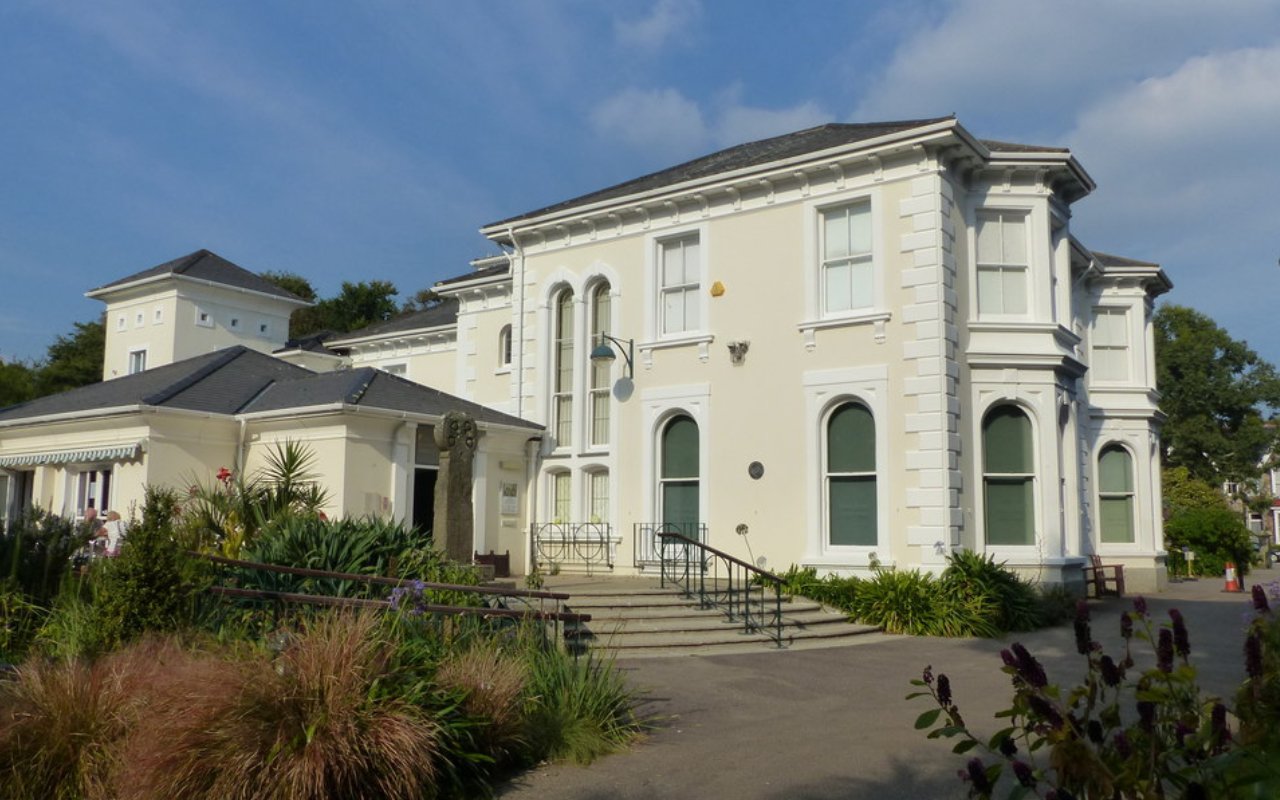
Penlee House Gallery & Museum, Penzance
Museums tackling loneliness
In rural areas such as Cornwall, the pandemic has exacerbated loneliness, with vulnerable people losing their sense of community. Emmie Kell thinks museums can be part of the solution.
It’s said that loneliness is worse for health than smoking 15 cigarettes a day. We’d started to understand just how destructive a lack of social connection could be for health and wellbeing long before the pandemic. Successive lockdowns have now given everyone an insight into the reality of people who are experiencing persistent isolation on a daily basis.
Participation in arts and cultural activity can play a powerful part in tackling loneliness but with cultural organisations closed, staff furloughed and redeployed, redundancies in some sectors and volunteers reluctant to return, this well-spring of community and creativity was no longer available to many in the same way. Although museums were able to reopen in May, some community museums have chosen to stay shut for the time being.
I believe museums have both the power and the duty to strive to be a force for good in society. In the last 18 months it has become clearer which organisations have set a vibrant example in terms of serving their communities. Their ability to respond effectively was born out of long-term investment in community relationships and networks, which were activated as the pandemic took hold. They have shown that the arts still have the ability to nurture, connect, sustain and inspire – even at times of crisis and despair.
Vibrant examples of serving the community
Falmouth Art Gallery has been working collaboratively with third sector partners enabling gallery staff to distribute 189 art packs in the community during lockdown, by hand. Staff also worked with WILD Young Parents and an artist – digitally – to reach isolated young people, recognising the role creativity can play in maintaining good mental health and wellbeing.
Loneliness and isolation among care-experienced young people can be extremely profound in places with poor public transport infrastructure, like Cornwall. This is why Penlee House, an art gallery in Penzance, accelerated its work with its long-term partner, Carefree, a Cornish charity working with children and young people who are in and leaving care.
Engaging young care leavers in digital sessions with artist Emma Saffy Wilson and youth workers helped to combat this issue head on, with purposeful, positive creative activity. The project, Culture Card, aims to provide free access to museums and galleries for all children and young people in and leaving care in the region.
The Museum of Cornish Life in Helston has been offering personal virtual tours to care home residents using iPads as part of its ‘Wish You Were Here’ project. What’s special about these tours is that they are conversations, conducted with warmth and humour, that make the experience personalised.
In Bodmin, The Keep museum secured a small grant to work with local artist, Felicity Tattersall, to create a resource pack for Wadebridge foodbank on the theme of connecting generations. This small museum has subsequently provided hundreds of art packs and supplies to families across the area and the relationship continues to grow.
At PK Porthcurno, the museum’s strategy to address specific local community needs has resulted in it buying back the local pub, which will now include a range of community facilities for local people living in this remote corner of Britain.
Using technology to connect
These are the museums which excite me – where they are the community – and not separate from it, where there is a passionate drive among staff to make culture connect with people and bring them together in a meaningful way.
At Cornwall Museums Partnership our latest audio experience, ‘Cornish Tales’, demonstrates how museum collections can be made available in imaginative ways via smart speakers to audiences who may never be able to visit and who are amongst the most isolated of all in our communities.
As part of our investment through Plymouth University’s EPIC project, 150 smart speakers have already been installed in care homes across Cornwall. There is something special about hearing voices from the past – a connection across time, which has been brought to life through new technology and deployed to help alleviate isolation through the simple power of the human voice.
Lessons from the past
Last year, when museums contemplated reopening after the first national lockdown in the UK, we commissioned research to better understand what people wanted from museums. The results were enlightening and remind us of the critical role museums can have in making sense of the world.
One respondent said: “Bringing history alive reminds us that this chaos that we are in at the moment is just a small pin prick in historical terms. Museums remind us of what we have survived in the past…I believe that they may have a greater role than normal at the moment.”
Museums and their many stories are a still a largely untapped part of our civic infrastructure, which have the power to play a vital role in community recovery. In fact, some were founded for this very reason, including Penlee House Art Gallery, created by Penzance Town Council as a memorial to those who died in WW2 and a place of reflection and recovery for those living with grief and loss.
I wonder if any council anywhere in the country is planning such a bold move now. There are many lessons from the past, should we care to look.
Emmie Kell is the CEO of Cornwall Museums Partnership.
![]()
@emmiekell
To learn about its latest initiative visit Reboot Cornwall.
Join the Discussion
You must be logged in to post a comment.